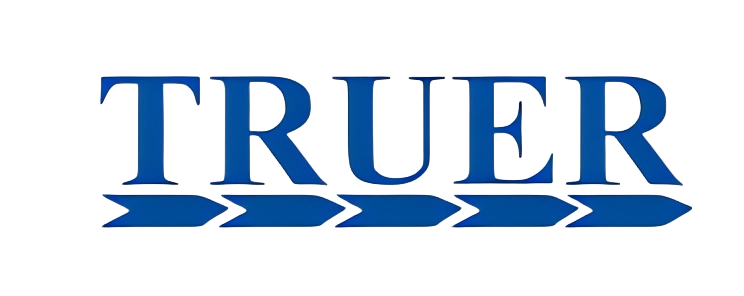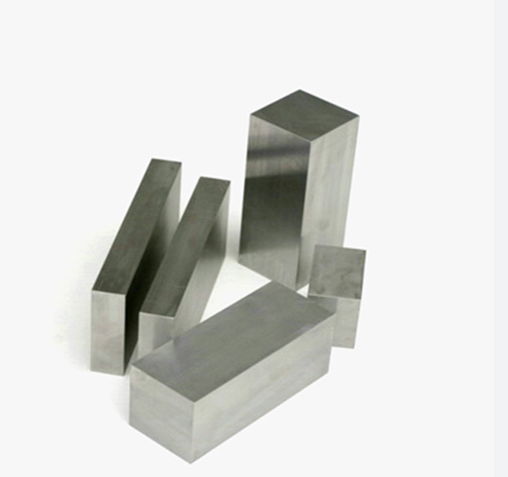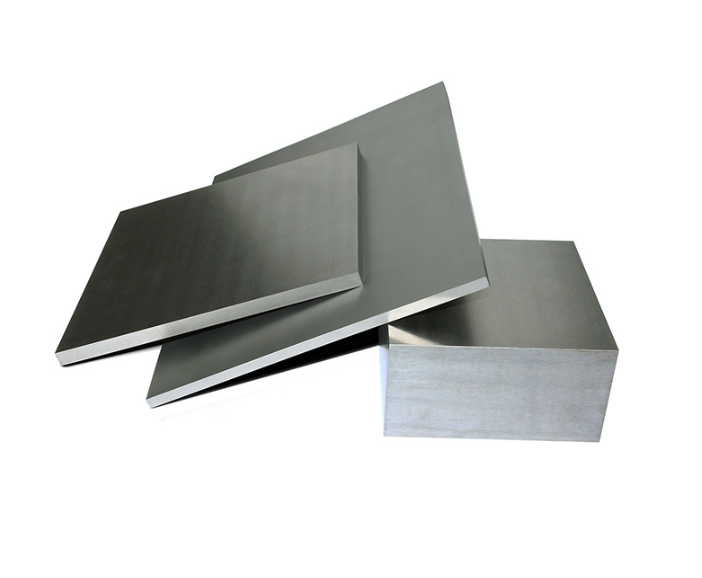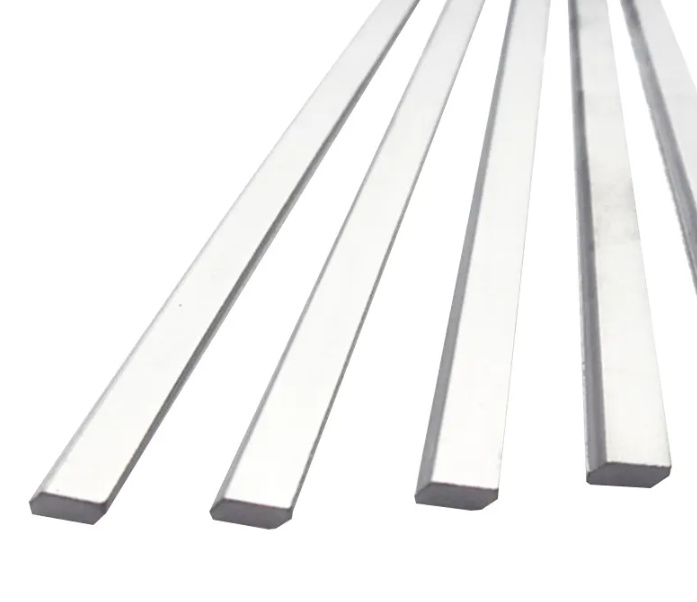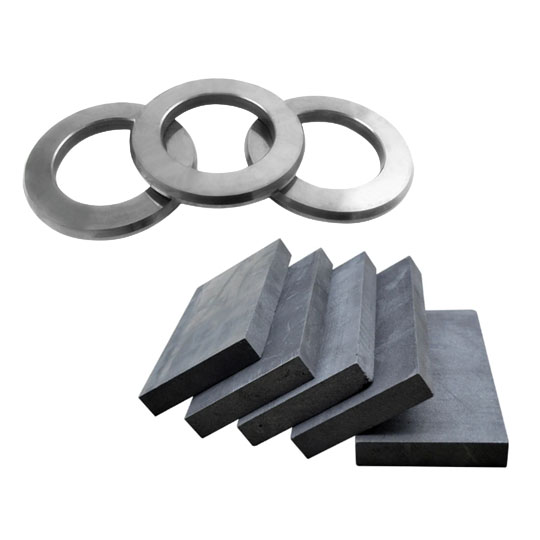Vue d'ensemble
Carbure de tungstène Les plaquettes en carbure de tungstène sont la pierre angulaire de l'usinage moderne, offrant une durabilité et une précision inégalées. Ce guide complet se penche sur le monde des plaquettes en carbure de tungstène, de leurs propriétés fondamentales à leurs diverses applications. Que vous soyez un machiniste chevronné ou un nouveau venu dans l'industrie, cet article vous apportera des informations précieuses sur ces outils essentiels.
Introduction détaillée
Qu'est-ce qu'une plaquette en carbure de tungstène ?
Une plaquette en carbure de tungstène est un outil de coupe fabriqué en carbure de tungstène, un matériau connu pour son incroyable dureté et sa résistance à l'usure. Ces plaquettes sont utilisées dans les processus d'usinage pour couper, façonner et finir divers matériaux, y compris les métaux et les composites. Elles sont très appréciées pour leur capacité à conserver une arête de coupe vive, même dans des conditions extrêmes.
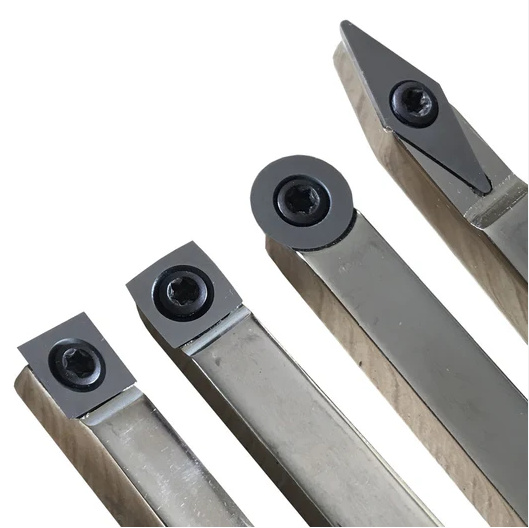
Principe de fonctionnement
Les plaquettes en carbure de tungstène fonctionnent en utilisant leurs arêtes de coupe dures pour enlever de la matière d'une pièce. Elles sont généralement montées sur des porte-outils et tournent à grande vitesse. La dureté du carbure de tungstène permet à la plaquette de couper des matériaux résistants et de produire des finitions précises et propres. La géométrie et le revêtement de la plaquette améliorent encore son efficacité de coupe et sa longévité.
Comment utiliser les plaquettes en carbure de tungstène
L'utilisation de plaquettes en carbure de tungstène implique plusieurs étapes critiques :
- Sélection des outils: Choisissez une plaquette dont la géométrie et la nuance sont adaptées au matériau et au type d'opération d'usinage.
- Mise en place: Fixer l'insert dans le porte-outil et s'assurer qu'il est correctement aligné.
- Paramètres de la machine: Régler la vitesse, l'avance et la profondeur de coupe de la machine en fonction des spécifications de la plaquette.
- Usinage: Effectuer l'opération d'usinage en surveillant tout signe d'usure ou d'endommagement de la plaquette.
- L'inspection: Contrôler régulièrement la précision dimensionnelle et l'état de surface de la pièce usinée.
Processus de fabrication
La fabrication des plaquettes en carbure de tungstène comporte plusieurs étapes précises :
- Préparation de la poudre: La poudre de carbure de tungstène est mélangée à un liant, généralement du cobalt.
- Appuyer sur: Le mélange est pressé dans la forme souhaitée à l'aide d'une presse à haute pression.
- Frittage: Les inserts pressés sont chauffés dans un four pour lier les particules entre elles.
- Broyage: Les inserts sont rectifiés selon des dimensions et des géométries précises.
- Revêtement: Des revêtements avancés sont appliqués pour améliorer la résistance à l'usure et les performances.
Types et catégories
Les plaquettes en carbure de tungstène se déclinent en différents types et catégories, chacun étant conçu pour des applications spécifiques. Il est essentiel de comprendre ces types pour sélectionner la plaquette adaptée à vos besoins d'usinage.
Plaquettes de tournage
Les plaquettes de tournage sont spécialement conçues pour les opérations de tournage. Elles sont utilisées pour enlever de la matière sur des pièces en rotation et se présentent sous différentes formes telles que :
- Inserts carrés: Idéal pour les opérations générales de tournage et de dressage.
- Inserts triangulaires: Ils sont dotés de plusieurs arêtes de coupe et conviennent au profilage et à la finition.
- Inserts diamantés: Utilisés pour des applications de tournage et de finition de précision grâce à leurs arêtes de coupe tranchantes.
Plaquettes de fraisage
Les plaquettes de fraisage sont utilisées dans les fraiseuses pour enlever de la matière d'une pièce. Elles sont disponibles dans différentes configurations pour répondre aux diverses opérations de fraisage :
- Plaquettes de fraisage carrées: Couramment utilisé pour le surfaçage, il permet d'obtenir plusieurs arêtes de coupe.
- Plaquettes de fraisage rondes: Idéal pour le fraisage des contours et la création de finitions lisses.
- Plaquettes de fraisage à grande avance: Conçue pour un enlèvement de matière à grande vitesse et une plus grande productivité.
Plaquettes de forage
Les plaquettes de forage sont utilisées dans les forets pour créer des trous dans les pièces à usiner. Elles sont conçues pour supporter des forces axiales élevées et offrent une excellente évacuation des copeaux :
- Plaquettes de forage standard: Convient à une large gamme de matériaux et au perçage à usage général.
- Plaquettes de forage pour trous profonds: Conçu pour percer des trous profonds avec une grande précision et une grande stabilité.
- Plaquettes de perçage indexables: Permet de remplacer facilement l'arête de coupe sans changer l'ensemble de l'outil.
Plaquettes de rainurage
Les plaquettes de rainurage sont utilisées pour réaliser des rainures dans les pièces à usiner. Elles sont disponibles dans différentes formes et tailles pour s'adapter à différents profils et profondeurs de rainures :
- Plaquettes de rainurage à arête unique: Permet un découpage précis des rainures avec un enlèvement de matière minimal.
- Plaquettes de rainurage à arêtes multiples: Offrent plusieurs arêtes de coupe pour une productivité accrue et des temps d'arrêt réduits.
- Inserts de filetage: Plaquettes de rainurage spécialisées utilisées pour couper des filets dans des pièces à usiner.
Tendances du marché
Le marché des plaquettes en carbure de tungstène est tiré par la demande d'outils d'usinage de haute précision. Les principales tendances sont le développement de revêtements avancés, la création de géométries spécialisées pour différents matériaux et l'utilisation croissante de machines à commande numérique dans diverses industries.
Spécifications
Informations de base sur les plaquettes en carbure de tungstène
| Paramètres | Description |
|---|---|
| Type | Tournage, fraisage, perçage, rainurage |
| Composition | Carbure de tungstène, liant de cobalt |
| Propriétés | Dureté élevée, résistance à l'usure, stabilité thermique |
| Caractéristiques | Arête tranchante, géométries précises, divers revêtements |
| Spécifications | Normes ISO, ANSI, DIN |
| Tailles | Longueurs, largeurs et épaisseurs variables |
| Notes | Différentes qualités basées sur la dureté, la ténacité et la résistance à l'usure |
| Normes | ISO 9001, ASME B94.55M, ANSI B212.4 |
Analyse comparative de produits similaires
| Attribut | Insert en carbure de tungstène | Insert en acier rapide (HSS) | Insert en céramique |
|---|---|---|---|
| Dureté | Très élevé | Modéré | Haut |
| Résistance à l'usure | Excellent | Modéré | Excellent |
| Résistance à la chaleur | Haut | Modéré | Haut |
| Coût | Modéré à élevé | Faible | Haut |
| Applications | Usinage de précision | Usinage général | Applications à haute température |
Applications
Les plaquettes en carbure de tungstène sont utilisées dans un large éventail d'industries en raison de leur polyvalence et de leurs performances. Leur capacité à conserver des arêtes de coupe vives et à résister à l'usure les rend inestimables dans diverses applications :
- Industrie automobile
- Usinage de composants de moteurs
- Fabrication de pièces de transmission
- Industrie aérospatiale
- Fabrication de composants structuraux d'aéronefs
- Usinage des aubes de turbines
- Fabrication de dispositifs médicaux
- Production d'instruments chirurgicaux
- Fabrication d'implants
- Industrie du pétrole et du gaz
- Production de forets
- Filetage de tuyaux
- Fabrication générale
- Usinage de pièces de précision
- Fabrication d'outils et de matrices
Comparaison entre TRUER et d'autres fournisseurs
Comparaison des fournisseurs de plaquettes en carbure de tungstène
| Fournisseur | Localisation | Gamme de prix par pièce | Spécialités |
|---|---|---|---|
| TRUER | ÉTATS-UNIS | $10 – $20 | Solutions personnalisées, revêtements avancés, haute précision |
| Sandvik | Suède | $12 – $25 | Résistance élevée à l'usure, large gamme de géométries |
| Kennametal | ÉTATS-UNIS | $15 – $30 | Des inserts durables, des designs innovants |
| ISCAR | Israël | $10 – $22 | Contrôle efficace des puces, haute performance |
Avantages et limites
Avantages et limites des plaquettes en carbure de tungstène
| Aspect | Avantages | Limites |
|---|---|---|
| Durabilité | La dureté élevée et la résistance à l'usure garantissent une longue durée de vie de l'outil. | Coût initial plus élevé que celui des outils standard. |
| Performance | Maintient l'arête de coupe à des températures élevées, convient à l'usinage à grande vitesse. | Un alignement et une configuration précis sont nécessaires pour obtenir des performances optimales. |
| Précision | Offre une excellente précision dimensionnelle et un excellent état de surface. | La nature fragile peut conduire à l'écaillage si elle n'est pas utilisée correctement. |
| Polyvalence | Applicable à une large gamme de matériaux et d'industries. | Ne convient pas à tous les matériaux, en particulier aux matériaux très souples ou extrêmement durs. |
Pourquoi choisir TRUER
Choisir TRUER pour votre insert en carbure de tungstène garantit l'accès à des outils de haute qualité, conçus avec précision et répondant aux exigences rigoureuses de l'usinage moderne. TRUER offre :
- Qualité supérieure: Fabriqué selon les normes les plus élevées avec un contrôle de qualité rigoureux.
- Solutions sur mesure: Possibilité d'adapter les inserts à des applications et exigences spécifiques.
- L'innovation: Développement continu de nouvelles géométries et de nouveaux revêtements pour améliorer les performances.
- Soutien: Un service clientèle complet et une assistance technique pour aider à la sélection et à l'utilisation des produits.
FAQ
Q1 : Quels matériaux les plaquettes en carbure de tungstène peuvent-elles usiner ?
A1 : Les plaquettes en carbure de tungstène permettent d'usiner une large gamme de matériaux, notamment les aciers, les fontes, les métaux non ferreux, les plastiques et les composites. Leur dureté élevée les rend particulièrement efficaces pour la coupe de matériaux coriaces et abrasifs.
Q2 : Comment choisir la plaquette en carbure de tungstène adaptée à mon application ?
A2 : Tenez compte du matériau à usiner, du type d'opération d'usinage et de l'état de surface souhaité. Consultez les directives et les spécifications du fabricant pour sélectionner une plaquette dont la géométrie, la qualité et le revêtement sont appropriés.
Q3 : À quelle fréquence les plaquettes en carbure de tungstène doivent-elles être remplacées ?
A3 : La fréquence de remplacement dépend du matériau usiné, des paramètres d'usinage et de la résistance à l'usure de la plaquette. Des inspections régulières sont essentielles pour identifier les signes d'usure, tels que l'écaillage des arêtes ou la perte d'efficacité de la coupe.
Q4 : Les plaquettes en carbure de tungstène peuvent-elles être réaffûtées ?
A4 : Oui, les plaquettes en carbure de tungstène peuvent être réaffûtées, mais le processus nécessite un équipement et une expertise spécialisés. Le réaffûtage peut prolonger la durée de vie de l'outil et maintenir les performances de coupe, mais il est souvent plus rentable de remplacer les plaquettes.
Q5 : Quels sont les avantages des plaquettes en carbure de tungstène revêtues ?
A5 : Les plaquettes en carbure de tungstène revêtues offrent une meilleure résistance à l'usure, une friction réduite et une meilleure résistance à la chaleur. Ces avantages se traduisent par une durée de vie plus longue de l'outil, de meilleurs états de surface et la possibilité d'usiner à des vitesses et des avances plus élevées.
